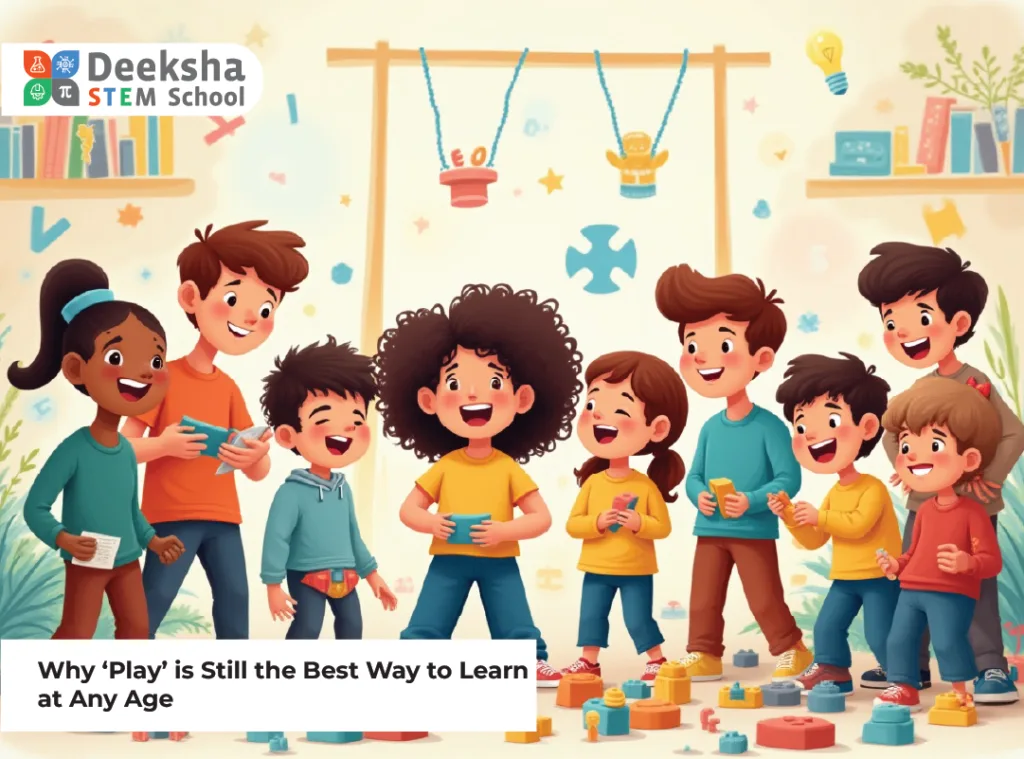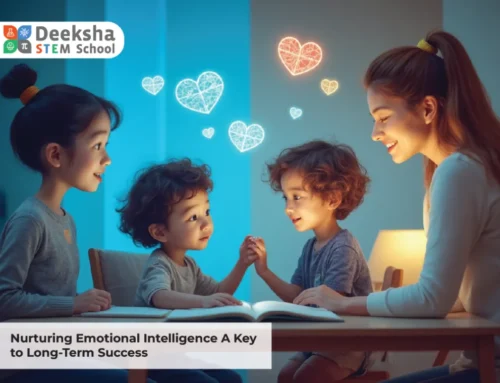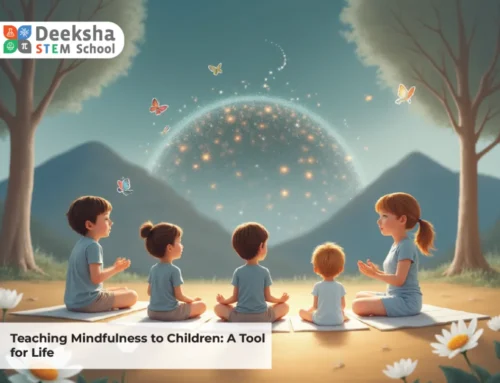Play is often viewed as the opposite of serious learning, especially in traditional academic environments that prioritize rote memorization and rigid classroom structure. However, recent research in neuroscience, psychology, and education all point to the same truth: play is not just a method for keeping children entertained—it’s one of the most effective ways to foster deep learning at any age.
From the toddler exploring building blocks to the teenager role-playing a real-world scenario in class, playful learning activates brain areas responsible for logic, memory, communication, and emotional balance. At Deeksha STEM Schools, we embrace this philosophy wholeheartedly by designing programs that integrate purposeful play across all grade levels. Our belief is simple yet powerful—when students enjoy learning, they engage more, understand better, and retain knowledge longer.
The Science Behind Play-Based Learning
Scientific studies consistently show that play stimulates the prefrontal cortex—the brain region linked to planning, decision-making, emotional regulation, and social behavior. Engaging in play-based learning facilitates:
- Neuroplasticity: Strengthening and forming new neural connections essential for memory and skill acquisition
- Intrinsic Motivation: Encouraging students to participate in learning because they’re interested, not because of external rewards
- Deep Retention: Concepts learned through hands-on activities and real-life simulation are remembered longer
- Safe Exploration: Children feel safe to try, fail, and try again—developing resilience and problem-solving confidence
- Cognitive Flexibility: Switching between tasks, adapting strategies, and thinking creatively are all enhanced
Types of Play That Enhance Learning
Play is not one-size-fits-all. It comes in different forms, each contributing uniquely to development:
| Type of Play | Educational Benefits |
| Constructive Play | Develops engineering mindset, spatial intelligence, and logic |
| Dramatic/Role Play | Builds empathy, communication, language skills, and emotional insight |
| Exploratory Play | Sparks curiosity, scientific observation, and discovery |
| Competitive Play | Instills sportsmanship, strategy, and stress management |
| Cooperative Play | Enhances collaboration, leadership, compromise, and goal setting |
| Physical Play | Boosts coordination, physical fitness, and supports mental alertness |
| Artistic Play | Encourages self-expression, imagination, and innovation |
Why Play Isn’t Just for Preschoolers
It’s a myth that play loses its educational value as children grow older. In fact, middle and high school students, and even adults, benefit immensely from learning experiences that incorporate elements of play:
- Teenagers: Learn teamwork and develop strategic thinking through sports, debates, drama, and collaborative STEM challenges
- Adolescents: Improve abstract reasoning by engaging in coding games, science simulations, and design thinking exercises
- Adults: Retain new knowledge better through gamified professional training, role-playing scenarios, and group problem-solving sessions
Play allows learners of all ages to immerse themselves in content actively and emotionally, increasing both comprehension and enjoyment.
How Deeksha STEM Embeds Play into Learning
We’ve carefully structured our pedagogy to align with how children learn best—through curiosity, experimentation, and play. At Deeksha STEM, learning and play are not opposites; they are partners:
- Interactive Classrooms: Teachers use role-plays, quizzes, visual games, and simulations to teach academic concepts
- STEM Labs: Students experiment, tinker, and build with real tools to apply classroom theory in hands-on projects
- Gamified Learning Modules: Subjects like math and science are turned into challenges with points, levels, and rewards
- Collaborative Projects: Group-based problem-solving encourages communication, planning, and innovation
- Creative Clubs & Extracurriculars: Robotics, drama, storytelling, visual arts, and music are platforms where learning meets joy
- Thematic Events & Exhibitions: Children present ideas through performances, demonstrations, and playful storytelling
Benefits of Play-Based Learning at Every Stage
Play enriches every aspect of a child’s development. From academic performance to emotional well-being, the benefits are significant and lasting:
- Promotes a Lifelong Love for Learning: Students associate education with joy and curiosity
- Improves Memory and Comprehension: Concepts are retained better when learned through active engagement
- Develops Social and Emotional Skills: Cooperation, patience, empathy, and conflict resolution flourish during play
- Stimulates Creativity and Critical Thinking: Play provides the space to explore different perspectives and imagine new possibilities
- Reduces Academic Pressure: Students are less anxious and more confident when assessments are gamified and interactive
- Encourages Independent Learning: Play fosters initiative, experimentation, and problem-solving from a young age
Tips for Parents to Encourage Learning Through Play
- Schedule Unstructured Time: Let children engage in free play without rules or outcomes
- Use Play-Based Learning Resources: Try flashcards, board games, memory games, and storytelling dice
- Model Playfulness: Show enthusiasm in exploring puzzles, reading aloud, or doing craft activities together
- Mix Play with Academics: Reinforce school topics using trivia, scavenger hunts, or concept-based games
- Balance Digital and Physical Play: Choose high-quality educational apps and combine them with real-world interaction
- Celebrate Curiosity: Let your child lead the way in discovering new hobbies or interests
Frequently Asked Questions
1. Isn’t play just a distraction from academic work?
- Not at all. Structured play helps reinforce academic content in a way that’s memorable and enjoyable. It enhances logic, focus, and self-regulation.
2. How does play help older students?
- Older students benefit from simulations, strategy games, team projects, and creative role-plays, which improve understanding of complex concepts and keep them motivated.
3. Can play-based methods prepare students for exams?
- Yes. Learning through play helps with concept retention, application, and stress reduction—three essentials for exam success.
4. What if my child prefers screen-based games?
- Look for educational apps that challenge critical thinking, math, science, or language skills. Combine screen time with physical play and social interaction.
5. How is play different at Deeksha STEM?
- At Deeksha STEM, play is purposeful. Every playful moment—from science experiments to storytelling—is guided by learning objectives. Students have fun while meeting academic goals.
Final Thoughts
Play is not a luxury or a distraction—it’s a necessity. It is through play that children and even adults learn most naturally and effectively. Play builds the foundation for cognitive strength, emotional balance, and social competence. In a world that values innovation and adaptability, play is no longer optional; it is essential.
At Deeksha STEM Schools, we have created an environment where the joy of learning thrives alongside academic rigor. Whether it’s through lab experiments, coding clubs, or group performances, our students experience the power of learning through play every single day.
Visit our campuses at Bannerghatta Road, Judicial Layout, Kengeri, and Vidyanagar to see how we’re redefining education—where every student learns not just better, but happier.






Leave A Comment